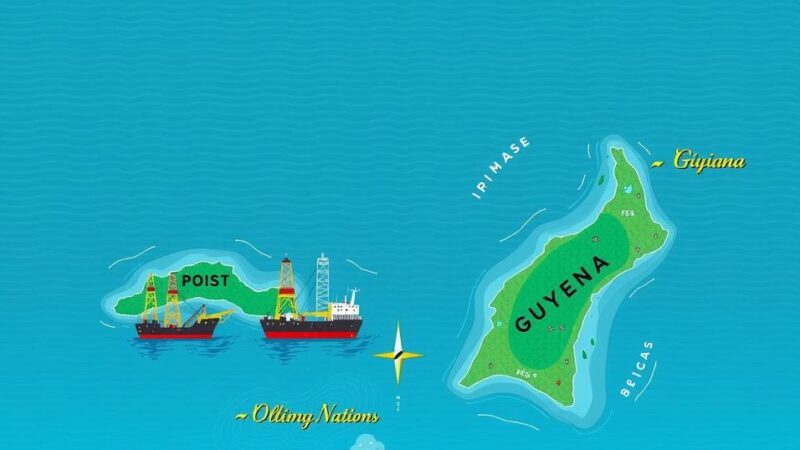The U.S. State Department’s spokesperson, Tammy Bruce, stated that America “deserves better” in terms of diplomatic relations, in light of the expulsion of South African Ambassador Ebrahim Rasool. Secretary Marco Rubio criticized Rasool as a “race-baiting politician” due to his previous remarks about Trump. The U.S. is implementing policies in response to perceived geopolitical threats from South Africa’s foreign relations.
In a recent press briefing, U.S. State Department spokesperson Tammy Bruce articulated that the United States expects a high level of respect from other nations, emphasizing that America “deserves better” in diplomatic relations. This comment referenced Ebrahim Rasool, South Africa’s ambassador to the U.S., who was declared “persona non grata” after making controversial remarks about President Trump’s administration.
Bruce articulated the need for a diplomat who can constructively facilitate the relationship between the U.S. and South Africa. She cited Bruce’s statement, emphasizing that without a standard for diplomatic conduct, the U.S. “deserves better.” Secretary of State Marco Rubio officially announced Rasool’s expulsion, denouncing him as a “race-baiting politician” who has a negative stance toward Trump.
Rasool criticized Trump ally Elon Musk’s association with right-wing figures in Europe, calling it a “dog whistle” to an embattled white community. While he did not criticize Trump directly, he advised a more diplomatic approach towards the administration. Bruce confirmed that Rasool’s diplomatic status was communicated formally to the South African embassy staff through senior-level diplomats.
Bruce articulated the seriousness of Rasool’s remarks, deeming them unacceptable and obscene. She noted that the expectation is a standard of respect necessary for maintaining diplomatic relationships, particularly when offering assistance or facilitating dialogue. Following the notice of expulsion, Rasool’s diplomatic privileges will cease three days later.
Rubio’s decision aligns with the Trump administration’s broader actions against South Africa, highlighted by an executive order from February that referred to white minority farmers as victims of racial discrimination amid land policy disputes. The South African government has rejected these claims, asserting that the law does not involve land confiscation and does not discriminate racially.
Additional measures taken by Trump included halting foreign assistance to South Africa due to the country’s relationships with Russia and Iran. Bruce noted that these actions stem from concerns about South Africa’s foreign policy and its implications for global security. She clarified that the U.S. aims to encourage positive changes rather than to punish or target nations.
In summary, the U.S. government, represented by State Department officials, has expressed dissatisfaction with South African Ambassador Ebrahim Rasool’s remarks and his subsequent expulsion. This decision reflects ongoing tensions in U.S.-South Africa relations, amplified by broader political actions taken by the Trump administration. The U.S. is advocating for a more respectful diplomatic engagement while addressing concerns over South Africa’s foreign policies.
Original Source: allafrica.com






